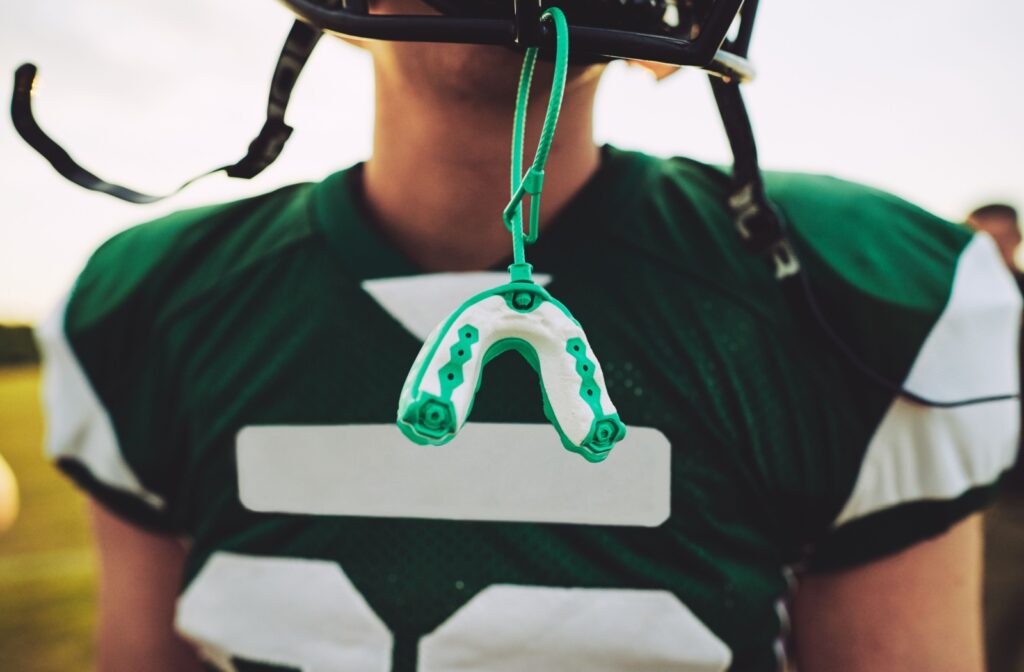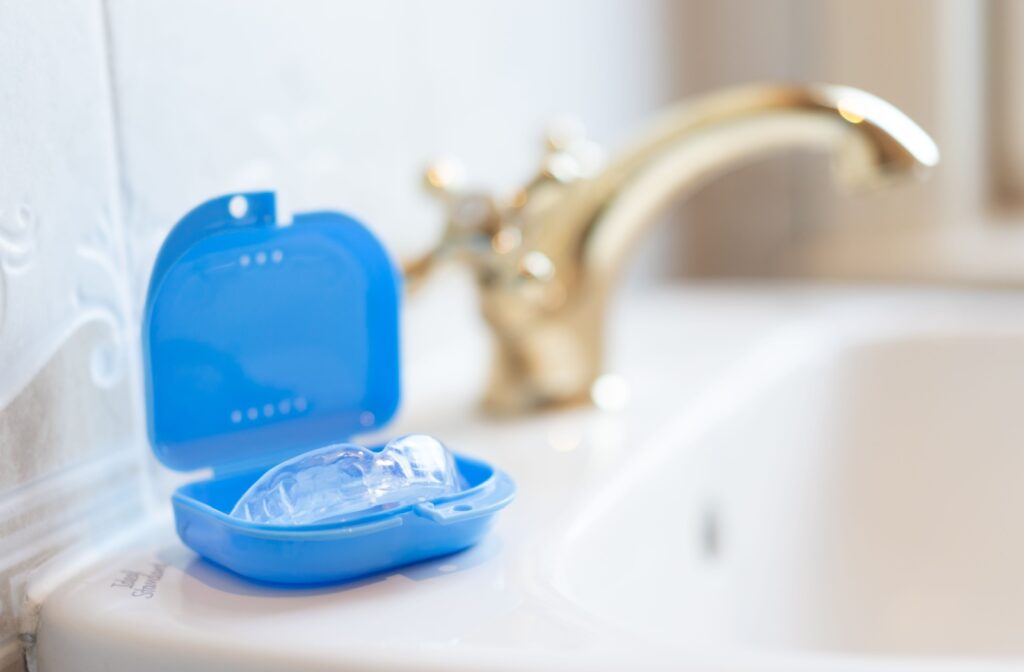At Hill Top Dental Centre, we understand night guards play an important role for people who experience teeth grinding, also known as bruxism, during sleep. These devices create a protective barrier between the upper and lower teeth, helping to reduce tooth wear, jaw discomfort, and other related issues. Understanding the longevity of a night guard is key to maintaining its effectiveness and supporting oral health over time.
Factors Influencing Durability
The durability of a night guard depends on several factors. The severity of bruxism is a significant determinant. Those who grind or clench their teeth with greater intensity typically place more strain on the night guard, leading to quicker wear. The type of material used to create the device also play a vital role.
Soft night guards, often made from flexible, rubber-like substances, tend to be more suitable for light to moderate grinding but may not last as long as other types. Hard night guards, which are constructed from rigid acrylic, are designed to withstand heavy grinding and are generally more durable. Hybrid night guards combine a hard exterior with a soft interior, offering a balance of comfort and strength, with an expected lifespan somewhere between soft and hard options.
Maintenance & Care
Proper care and maintenance are equally important in determining how long a night guard lasts. Daily cleaning with lukewarm water and a soft toothbrush can help prevent the accumulation of bacteria and maintain the material’s integrity. Using non-abrasive toothpaste or a specialized cleaning solution protects the surface from damage during cleaning.
Periodic deep cleaning, such as soaking the night guard in a denture cleaning solution or a diluted hydrogen peroxide mix, can remove buildup and odors. It is also advisable to store the night guard in a ventilated case when not in use, ensuring it is completely dry to discourage moisture-related issues like bacterial growth. Routine dental check-ups provide an opportunity for professional assessment and cleaning, which further supports the longevity of the device.
Signs of Wear & Replacement
A night guard’s condition can also provide clear signs that it is time for a replacement. Visible wear, such as cracks, tears, or holes, indicates that the protective function has been compromised. Deformation of the material can lead to an improper fit, reducing both comfort and effectiveness. Discomfort or soreness in the mouth while using the night guard may also signal that it is no longer functioning as intended. Additionally, discoloration or persistent odors often suggest the presence of bacterial buildup, which can pose health risks if not addressed.
Custom-Fitted vs. Over-the-Counter Options

The decision between custom-fitted and over-the-counter night guards can have a significant impact on durability and comfort. Custom-fitted night guards, designed by dental professionals to match the unique shape of a person’s teeth, often provide superior protection and longevity compared to generic, mass-produced options. These professionally made guards are molded specifically for the user, ensuring a snug fit and optimal function.
While the initial cost of a custom-fitted guard may be higher, the tailored fit and extended lifespan can make it a cost-effective solution over time. In contrast, over-the-counter guards, while more affordable upfront, may not provide the same level of fit or durability. A poorly fitting guard can lead to discomfort or reduced effectiveness, which may necessitate more frequent replacements.
Lifestyle & Habits
Another important aspect to consider is how lifestyle and habits can influence a night guard’s longevity. People who clench their teeth throughout the day in addition to nighttime grinding may experience more rapid wear of their device. The frequency of use and the amount of stress placed on the guard during sleep directly correlate to its durability. Moreover, people who consume acidic or sugary foods and beverages before wearing their night guard may inadvertently shorten its lifespan. Acids and sugars can contribute to the breakdown of materials and promote bacterial growth, making diligent oral hygiene practices essential.
Proper Usage
Education on proper use is also a critical component of maximizing a night guard’s durability. Wearing the device as directed by a dental professional and avoiding behaviors like chewing on the guard during waking hours can prevent unnecessary damage. Additionally, it is crucial to avoid exposing the night guard to extreme temperatures. For instance, washing the guard with hot water can cause warping, while storing it in overly humid conditions can weaken its structure over time. A conscientious approach to storage and handling contributes significantly to the device’s longevity.
Timely Replacement
Many people may not realize the importance of regularly replacing their night guard. While some might be tempted to continue using an old or damaged guard to save costs, doing so can undermine its protective benefits. A compromised night guard may no longer effectively prevent tooth wear or alleviate jaw tension, potentially exacerbating the symptoms of bruxism. Seeking timely replacements and discussing concerns with a dental professional can help maintain both the effectiveness of the device and overall oral health.
Factors Affecting Night Guard Longevity
Understanding the factors that influence how long a night guard lasts can help people make informed decisions about their care. The severity of bruxism, the type and quality of materials, and the maintenance routine all contribute to the device’s lifespan.
Regular assessments of the night guard’s condition and consistent cleaning practices can maximize its durability and maintain its protective function. Book an appointment at Hill Top Dental Centre and get advice about the most appropriate type of night guard for your needs. By paying close attention to care routines, usage habits, and the signs of wear, you can extend the life of your night guard and maintain its essential protective benefits.



